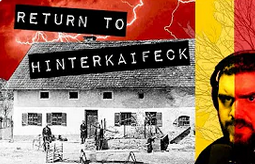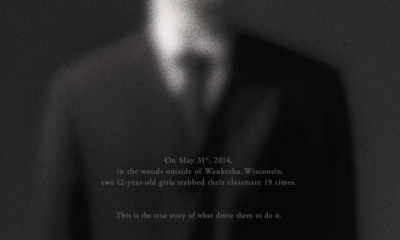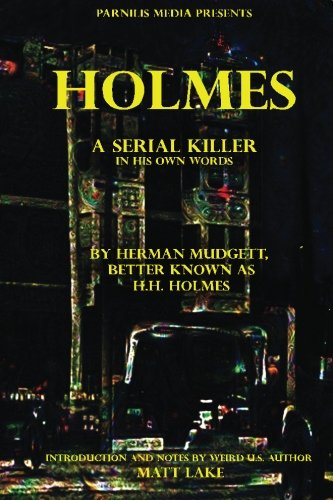
True Crime Studies: A Serial Killer in His Own Words by H.H. Holmes
More Videos
Published
3 years agoon
By
Rachel Roth
Have you ever heard a terrible liar, and I mean Pinocchio terrible, try to worm their way out of a bad situation? The way they stumble over their lies until they can’t keep them straight anymore, struggling to weave together a story that doesn’t make a whole lot of sense. It’s painful to listen to and even more painful to read. I read this and asked myself, what the heck is this? Was infamous serial killer H.H. Holmes, master manipulator, on something when he wrote this laughable attempt at both a memoir and a self-defense statement or was there just no editor in the prison? Either way, he would’ve had better luck trying his hand at fiction because that’s basically what this is.
This isn’t the only book written by a criminal, a serial killer, and I doubt it’ll be the last. There is something about such a description, “a killer in their own words” that is impossible to resist. It allows people to get even closer, whilst keeping a safe distance, to men and women the world has perceived as evil and gives them the opportunity to potentially dissect just a fraction of their minds. H.H. Holmes, John Wayne Gacy, David Berkowitz, Jack Unterweger, etc. These are all convicted killers that have used literature to try and change public perception of them with various degrees of success. Jack Unterweger, convicted of murdering a prostitute in 1976 was actually triumphant when he wrote his autobiography titled Fegefeuer Oder Die Reise Ins Zuchthaus (Purgatory or the Trip to Jail – Report of a Guilty Man). In the book, Unterweger explains his actions with a sob story about an abusive mother. The story was so compelling that it actually managed to change the state’s mind and he was released on parole in 1990. Unfortunately for young women in that area, it didn’t take long for him to start dropping bodies and he was arrested again in 1994.
A counter to Unterweger is John Wayne Gacy who had much less luck with his memoir A Question of Doubt in 1993. Although both books feature the killer in question trying to prove their innocence they are very different in execution and style. Gacy’s method of defense was to try and create a conspiracy theory about his conviction and blamed his crimes on other killers that the police were not prosecuting. A Question of Doubt didn’t do anything other than become a morbid collector’s item for true crime devotees.
H.H. Holmes falls somewhere in the middle. Not in public perception but in the method at which he writes his own memoir/defense story and it is probably the most ridiculous, bewildering, nonsensical narrative that a man on trial for murder could ever create. It’s so bad that just confessing would have made him look better. Holmes: A Serial Killer in His Own Words makes absolutely no sense. It should be taught in schools on how NOT to write or to lie. It’s not that the explanations he gives don’t make sense, although most are far-fetched, but that they’re written as if he loses track of them within moments of writing them down. There is a part in the book where he admits to having a body stashed in his hotel room but it’s for the purpose of a life insurance scam that’s ruined when a cop busts in. He tricks the cop into leaving then convinces the other hotel residents that the cop was actually a robber. He then puts the body in a trunk and lugs it around for a few days. This is an actual scene in the book that quickly moves on to something else completely unrelated.
While I was reading this I was torn between laughing and reaching through the pages all the way through to Holmes’ prison cell and ripping that pen away from him. Maybe slap him around a bit.

Herman Webster Mudgett, better known as Dr. Henry Howard Holmes “H. H. Holmes,” was an American serial killer best-known for the so-called “Murder Castle” that he built in 1887 and had up and running during the World’s Columbian Exposition set in Chicago in 1893. Built to kill people, the Castle had soundproofed rooms and mazes of hallways, some of which seemed to go nowhere, and sections that were designed to be nothing but death traps. It is widely believed that he had killed hundreds of people in this building, but not only was Holmes a murderer, he was also big a fan of insurance fraud. This guy probably scammed more women and business owners than one person in history, often in the laziest of ways, and he actually uses his time as an insurance hustler as a crutch while making up his defense in A Serial Killer in His Own Words.
Erik Laron’s The Devil in the White City explores much of this in great detail if anyone is interested (great book).
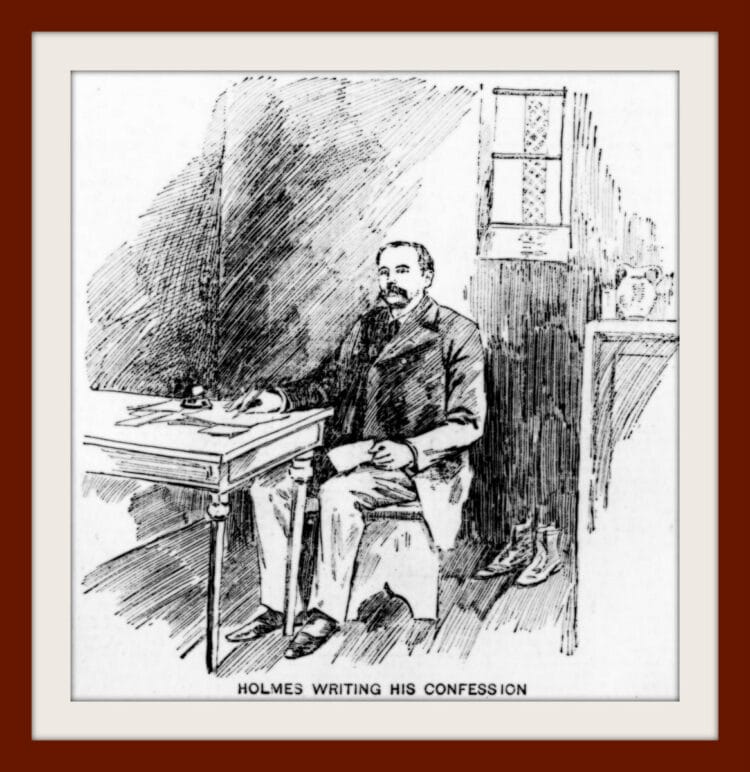
When Holmes was arrested on November 17, 1894, he immediately started on the numerous contradictory claims that would dictate his post-arrest life. His time in prison was relatively short as he was put to death just two years later, but for a large portion of that time, he worked at trying to prove his innocence. He picked up a pen and started writing the “truth” only no two accounts matched. His confessions changed constantly and often made little sense. As time went on, his claims started to morph into something resembling self-damnation as he’d later change his stance on innocence, deciding that he was pure evil, a man possessed by the devil. He claimed to be so vile and demonic that he was starting to resemble Satan in the face.
Such statements would normally accompany feelings of remorse or fear of death as the accused realizes that they’re coming closer to their execution. However, that was not the case for Holmes. Despite the admission of guilt and saying that he was possessed against his will, he remained oddly calm upon his arrival at the gallows.
If I could call A Serial Killer in His Own Words anything, it would be a study on mental deterioration, compulsive liars, and the psychopathic process of emotions. Throughout the chapterless passages that run across Holmes’s childhood and youth, there is a vain attempt at mimicking emotion and sympathy. In the beginning, Holmes takes a moment to briefly describe his parents and childhood but it is rushed and empty. Everything else he takes his sweet time talking about, but the one section of time that most people always stop to reminiscence about, he speeds past with a fast “my parents were lovely people” comment and leaves it there. As he describes himself as a boy, everything feels a bit hollow because I believe that he’s trying to imagine what the readers will think is sympathetic, but is unable to put himself in that mindset.
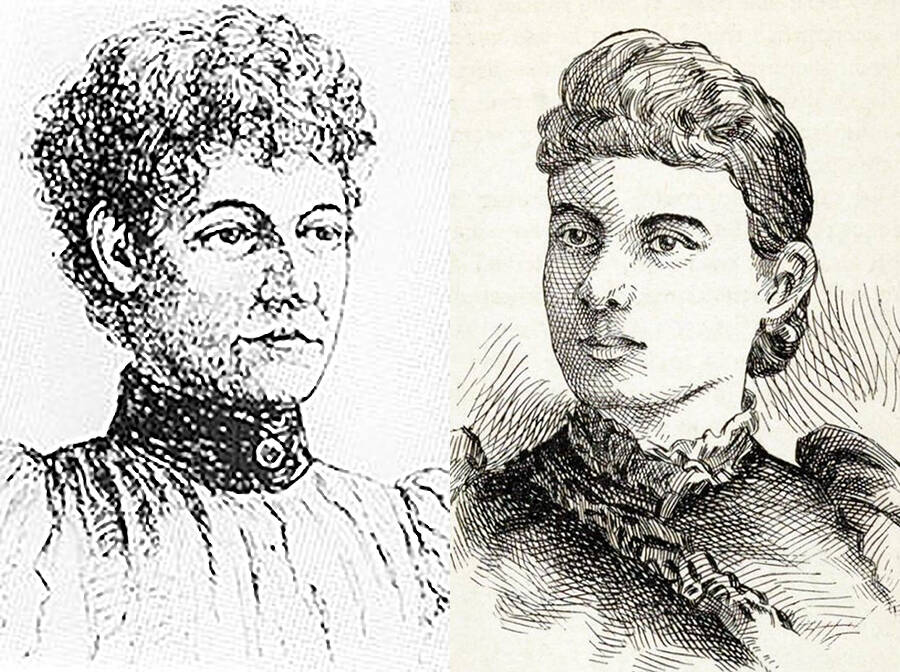
Once rushing past boyhood, you can tell we’ve reached the point in his life that he is most proud of. His medical accomplishments, education, the way he easily charms women, we get so much of this that it’s almost unbearable. One by one, Holmes meets the future victims that he claims he either hardly knew or cared for deeply and had no idea what happened to them, and again, we get more of the mimicry. Minnie and Nannie Willaims are two women, victims, that Holmes claims to care for and even love to some extent. However, the way he writes them, you can tell he doesn’t. He can’t wait to get past their section and get back to himself, which he does very quickly. The story of the Williams sisters, which ended in tragedy in real life, ends without a proper conclusion in Holmes’s narrative. He jumps around them, moving them around in the story so that he can clear his name while also not waste time talking about them and the result is a whole lot of bad writing.
I know this man was a serial killer, a monster even by the worse of standards but honestly, after reading A Serial Killer in His Own Words the man has lost the ominous allure as a study topic. This book could be adapted into a spoof movie about serial killers. That’s how ridiculous it is. Before, the man known as H.H. Holmes was on par with something demonic. He built this murderous castle, killed people beyond anything that can be called impulsive or pleasurable but as if that was the only thing his hands knew how to do, and his presence on this Earth felt ominous. Even after his death, his hotel was rumored to be cursed, with those who knew him touched by evil. However, after reading this, he no longer seems as such. As weird as it sounds, this almost ruins the shadow he casts over the city he once haunted because now when I think of him, I can only think of a guy that was incapable of telling a series of lies well enough to make sense. Plus, the stories he made up tells me that he probably read whatever the equivalent of cheesy detective novels was back then.
 (2.5 / 5)
(2.5 / 5)
Related posts:
- True Crime Studies: Philip Carlo’s ‘The Night Stalker’ is graphic nightmare fuel
- True Crime Studies: Naming Jack the Ripper by Russell Edwards
- True Crime Studies: “A Bird in Your Hand” is probably the borest true crime book I’ve ever read
- True Crime Studies: Another side of Ted Bundy is shown in Elizabeth Kendall’s ‘The Phantom Prince.’
Rachel Roth is a writer who lives in South Florida. She has a degree in Writing Studies and a Certificate in Creative Writing, her work has appeared in several literary journals and anthologies. @WinterGreenRoth

You may like
Released in May of this year, You Like It Darker is the latest short story collection by Stephen King.
In the afterward King says. “You like it darker? Fine, so do I.” This sort of declaration might lead one to believe that this collection is going to be darker than his others. That we might reach depths of horror that we haven’t yet seen before, even from the King himself. This is a promise that this book does not deliver on. But that isn’t to say that You Like It Darker wasn’t still a damn fine read.
The good stories
The first story in the book, Two Talented Bastids, started everything out on the right foot. This is the story of a man named Mark. Mark looks after his father, who he lovingly calls Pop. Pop is a famous author His best friend, Butch, was a famous painter before he passed.
Everyone wants to know how two men who are lifelong friends suddenly become famous in their forties. But as far as the men in question are concerned, they’re just two talented bastids. That is, until Pop dies, and leaves a story to explain to Mark how one fateful hunting trip changed their whole lives.
Another tale I appreciated was Rattlesnakes. This is a sequel to the classic King novel, Cujo. If you haven’t read Cujo, this will spoil the ending for you. I, for instance, had not read Cujo.
Rattlesnakes is about Vic Trenton. A recent widower, he’s traveled to Florida to heal from his losses. There, he meets a lovely woman about his age (old) who appears to be not quite right in the head. She walks around around town like Delta Dawn, not with a suitcase in her hand but wheeling a twin stroller. Years ago, her twin sons were killed by rattlesnakes. And she’s never really gotten over that. So she wheels around the stroller and pretends they’re still in there. At least, everyone assumes she’s pretending.
Easily my favorite story in the book was Danny Coughlin’s Bad Dream. Imagine if you had a prophetic dream, but just one. That’s exactly what happens to Danny. He dreams of the location of a murder victim. When he goes to the location, which he’s never been to before, he finds the poor woman in question. Of course, the police find this extremely suspicious. And one detective grows so suspicious that he starts taking matters into his own hands.
The bad stories
Of course, not all the stories can be great. One that I especially disliked was Finn. This is the story of a young man with bad luck. I mean, terminally bad luck. So bad that he’s kidnapped in a case of mistaken identity.
This story just didn’t have a satisfying ending. Nor did it have a satisfying middle. There was just no real conclusion.
Another story that missed the mark was On Slide Inn Road. It’s the story of a family on a car trip to see a dying sister when they’re overtaken by some rough people outside of an old abandoned inn. This story also doesn’t seem to have any sort of cohesive storyline. It’s just the story of a family having a really bad day. It doesn’t go anywhere.
Overall, this was a collection that shows King’s patterns. He writes over and over about men who have lost their wives and their sons. Men who have survived their families and been left alone. Most of the main characters in these stories fall into that category. Perhaps in that way, these stories are darker than the ones King has written in the past. At least for him.
Fans of King’s work will love this book. I loved this book. I loved catching up with the lonely widower from Cujo. I loved meeting monsters who might or might not have crawled out of the back of a Buick. And while none of these stories were dark enough to disturb my sleep, they were good enough to keep me up reading late.

As summer approaches, there’s nothing quite like reading a book with warm campy vibes. It’s especially true if you’re lying on a sunny beach. Nicole M Wolverton’s A Misfortune of Lake Monsters matches that picture perfectly. It’s described as a creature feature with a Stranger Things-esque friend group.
Although set in modern times, I found the story felt like something out of the 80s (in a good way). Character dynamics reminded me of The Goonies and IT while the narrative combined just the right amount of adventure, romance, and horror to bring out nostalgia and comfort at the same time. Anyway, let’s dive (hehe) in!
Plot
Lemon Ziegler has one aspiration in life – to become a vet. Unfortunately, that would involve leaving her hometown, which is a problem as she is obligated to continue the family business. While such a situation is not out of the ordinary, the business itself definitely is. Lemon must impersonate Old Lucy, the town monster (a nice homage to the Loch Ness myth).
The decades-old legend about this creature swimming around in the lake is keeping tourism in the town alive. Because of this, poor Lemon has no other choice but to follow in her family’s footsteps. She keeps this secret from everyone, including her best friends, Derrin and Troy. The latter is harbouring feelings for Lemon that are stronger than friendship. As he is a teenage boy though, he is too afraid to make a move (much to Darrin’s enjoyment).
Things take an unexpected turn when a real monster shows up, hungry for blood. As one could guess in these kinds of stories, no one believes Lemon at first. This only allows the creature to claim more victims (and yes, I feel the saddest about the poor dog). Once the adults finally decide to do something, it alerts the FBI, which makes the situation more difficult for our gang. Unsurprisingly, they are the only ones who can stop the monster from wreaking move havoc.
In the midst of the riveting adventure, we also see Lemon go through a character arc. She stands up to her grandfather, allowing him to see her as an adult for the first time ever. There’s also the blossoming of her and Troy’s romance. The pair awkwardly navigate the transition from friendship to romance in an adorable way. At its heart though, this novel is about family, blood or otherwise, and how strong connections can sometimes be the only way to save your life. After all, who could defeat a multidimensional monster by themselves?
Overall thoughts
I had a blast with A Misfortune of Lake Monsters as it combined all the components of making an effective adventure story with enough heart to make you care about what happened to the characters. They are sympathetic yet entertaining and their relationships feel organic down to the dialogue that, while a tad cheesy, is oozing with charisma.
The reasons I am giving it four stars are more individualistic. I tend to go for a darker type of thriller/horror and this story, although not short of gore, ultimately steers in a more heartwarming direction. It’s something I anticipated knowing the age range and found fitting with what the narrative was going for.
I also would have liked a slightly different as I feel the story entered more of a sci-fi subgenre in the last third. While that’s fine overall, it is not my first choice of horror. Considering these things are more down to my personal preferences as a reader, I would absolutely recommend this book. I’m excited to see what the authors does next!
 (4 / 5)
(4 / 5)
Dear readers, the time has come for some answers. At least, that’s what the teaser for the new installment of Monastery says. As usual, it delivers what it promised and more as we untangle the past and its connection to the present. Without any further ado, let’s talk about it, shall we?
Plot
We start the episode with a blast from the past. Cassandra and Celeste (Nicole’s aunt and Arthur’s lover for those with short-term memory) are in the hospital because of Celeste’s pregnancy complications. Cassandra promises her former best friend that she will ruin her all the while we find out Francis’s real parentage. The picture is finally starting to come together.
As we are back in the present day, our group is more scattered than ever. Thomas is his father Walt’s prisoner while David is still running around looking for Rocky. Fred on the other hand is just looking for any place to crash, homelessness and all. Our dethroned beauty queen Nicole is hiding away from everything – including her shame. Last but not least, little Henry is spending his time taking care of Nana Beth. Guessing that is his redemption for trashing all the evidence of Albert’s murder gathered so far. Although frustrating, his actions are understandable – the poor kid is traumatized and just wants some peace.
George Turner’s murder is still an active investigation. It is obvious that this cover-up wasn’t nearly as successful as Albert’s. I sure as hell hope that Francis gets his comeuppance sooner rather than later. Not particularly because Turner didn’t deserve it but so the rest of the characters would be safe from him. Although as I’ve said before, his clear descent into sociopathic tendencies is kind of fascinating to watch.
We also get an interesting development in what so far has been a tiny background detail, which is the Monastery Werewolf. As the creature comes to visit Rocky, we find out our resident star dog considers it family. Not going to lie, it took me a few reads to understand what this means. Now I’m getting all sorts of ideas as to how the supernatural ties into the rest of the story.
Speaking of the supernatural, it is none other than Madame Witch who frees Thomas from his captivity. Well, her contribution is indirect as she sends his best friend Alfie to help instead. Although I’d say currently the two should set their dynamic status to ‘it’s complicated’. As soon as he’s free, Thomas is immediately back in his detective mode. For arguably the first time he gets some real answers as we find out the whole backstory of Albert/Celeste/Cassandra triangle. I won’t go into details as that trio deserve their own article but let’s just say it gives Cassandra a big ass motive for killing her husband. Not to mention the way she took Francis from Celeste was quite brutal to read.
We reach the lead-on for the grand finale as David and Henry are coming to free Rocky. This naturally comes with a condition – they must hand Francis the key they found during the investigation. Little do they know Nicole is already there being held at gunpoint. Oh, and Fred should also be around somewhere as he was sleeping there the night before. Thomas might be a little late to the party since he and Alfie are held a knifepoint by Rick (seems like a running theme here). Nothing good can come from this.
Overall thoughts
This episode does a perfect job of setting up the big finale. It reveals everything we need to know except the main question – who killed Albert? At this point, while it of course still matters, this story is so much more than that. It’s about all the mess that this family has got themselves into, how with each mistake they kept digging deeper, and how it took a whole new generation for all of that to come up to the surface. I can only hope our investigative gang will make it out alive…

More thoughts from the author:
1. Although a minor character in comparison, Walt strikes me as someone who’s there to represent the themes of Monastery – someone who will do horrible things in the name of family. What was your intention with his characterisation, especially considering he works for justice (aka the police?)
This is why I will always defend my decision to have a large cast, as opposed to most books – when you get even the slightest sense of fleshing out a minor character, it feels so rewarding. Walt, to me, takes the crown of “father of the year”, even if he does it by locking his son up in the bedroom. He is protecting his wife’s secret, protecting his son’s innocence, and doing so by going against his core ideals – i.e., a detective covering up a murder. He’s also based on a favourite uncle of mine, so it makes me happy to give him his moment to shine.
2. Something I thought of while writing this review – the cover up of George Turner’s murder seems to be a kind of juxtaposition as to how neatly Albert’s was since the police keep discovering evidence left and right (and how Francis doesn’t particularly seem to care). Was this intentional on your part?
It all adds up to plot convenience, and I have no shame in admitting that – Albert’s murder was so neatly covered up because I needed it to go unsolved for 14 years, whereas the reader knows who killed George, so there is no need for the cover-up to be well done.
As for Francis’ reaction to the murder, he started out anxious and paranoid after the fact, but he has grown into a state of not caring, which further depicts his descent into darkness – he knows he’s close to his goal (of finding the money and leaving his family), so there is a sense of invincibility taking over. He is stepping into his main villain energy and we are here for it!
3. Alfie has been yet another background character until now and yet he is the one who rescues Thomas. To me he seems like the friend who genuinely cares for Thomas and who gives him that reality check he sometimes needs to get out of his own head. Was that at least partially why you chose to bring him in for the grand finale?
Fun fact: Alfie was originally a series regular. However, halfway through writing the series, I realised I wasn’t using him as much as I’d wanted to, so I bumped him down to recurring. But the original plan always saw him and the other regulars coming together for the big climax, which is why he is in the fold. Alfie is someone who keeps Thomas grounded (if not humbled), since Thomas has the slight tendency to, well, think he’s better than everyone else. What’s coming up for them is one of the most exciting things I’ve ever written about.
4. Lastly, it’s not so much a question but rather a well done for how you crafted the Albert-Celeste-Cassandra dynamic! I was very invested despite knowing the outcome. Weirdly enough, while hating Cassandra for how she handled it, I sort of understood why she thought that Celeste deserved it? Either way, congrats for managing to craft these love stories in the midst of all the murdery goodness.
Thank you so much. As I’ve said before, romance is not my strong suit, but I do love a soapy triangle – and if it ends with gun violence, even better! The reveal of this mystery is probably my favourite sequence in the series so far.



